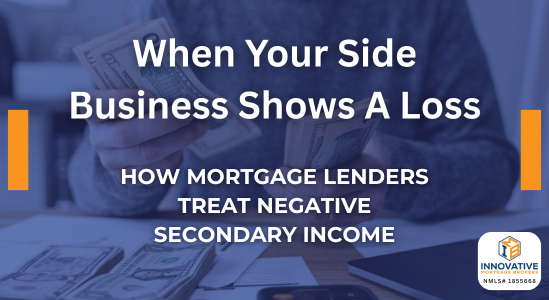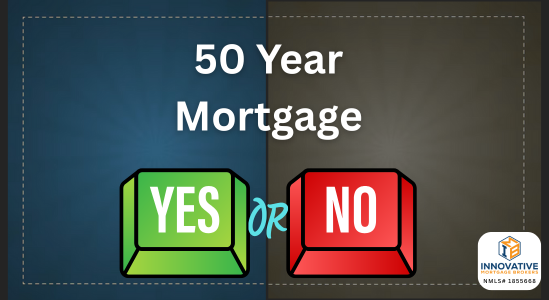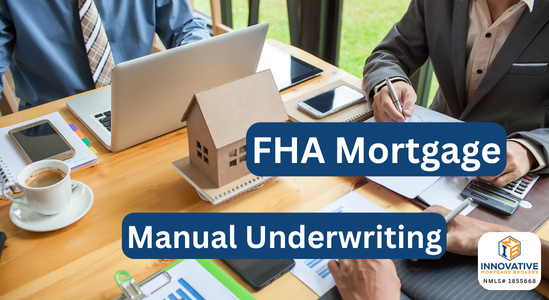How mortgage lenders really treat negative secondary income Side hustles are everywhere. Uber driving, an…
Conventional Mortgages in Pennsylvania and Florida: A Comprehensive Guide from Innovative Mortgage Brokers

At Innovative Mortgage Brokers, we are staunch advocates for educating our clients to equip them with the knowledge they need to make informed financial decisions. Understanding the different types of mortgages available can be a daunting task, but it is crucial to choosing the right one that fits your unique financial situation.
In this comprehensive guide, we delve deep into the realm of conventional mortgages, unpacking their intricacies and shedding light on their benefits. We aim to provide you with a clear understanding of what conventional mortgages entail, and help you determine if they align with your home ownership goals.
Conventional mortgages are popular for a variety of reasons, but they may not be the perfect fit for everyone. Thus, we’ll also provide insights on the types of borrowers who would most benefit from these types of loans. Our goal is to ensure you have all the information at your fingertips to make the best decision for your financial future.
What is a Conventional Mortgage?
A conventional mortgage, in its most basic sense, is a home loan procured from a private lender such as a bank, a credit union, or a mortgage company. Unlike government-insured loans like FHA, VA, or USDA mortgages, conventional mortgages are not guaranteed or insured by the federal government.
These loans are often dubbed as “conforming” loans due to their adherence to the guidelines set by Fannie Mae and Freddie Mac, two prominent government-sponsored enterprises in the United States. These entities buy and guarantee mortgages from lenders to ensure liquidity, stability, and affordability within the housing market.
The standards set by Fannie Mae and Freddie Mac encompass various aspects of a loan, including but not limited to the size of the loan, borrower’s credit score, down payment requirements, debt-to-income ratio, and documentation needed. Conventional mortgages that meet these guidelines are eligible for purchase by these entities.
However, it’s important to note that not all conventional loans conform to these standards. Those that exceed the loan limits set by Fannie Mae and Freddie Mac are classified as non-conforming loans or ‘jumbo’ loans. While they are still considered conventional loans, they pose more risk to lenders due to their larger size and are often associated with more stringent qualification requirements, higher interest rates, and larger downpayments.
Conventional mortgages offer significant flexibility and can be used for a range of property types, including primary residences, second homes, and investment properties. They can also be tailored to the borrower’s needs, available in various terms (typically 15, 20, or 30 years), and can be either fixed-rate (where the interest rate remains constant over the loan term) or adjustable-rate (where the interest rate may fluctuate based on market conditions).
In essence, a conventional mortgage is a versatile home financing option that caters to a wide range of borrowers, offering varying degrees of flexibility, risk, and reward. Whether it’s the right choice for you depends on your individual financial situation, home ownership goals, and risk tolerance.
Benefits of Conventional Mortgages
Conventional mortgages come with a host of advantages that make them an appealing choice for many borrowers. Here are some of their notable benefits:
Broad Property Options
One of the key advantages of conventional mortgages is their flexibility in property types. Unlike government-backed loans which may have restrictions, conventional loans can be used to finance various types of properties. Whether you’re looking to buy a primary residence, a second home, or an investment property, a conventional mortgage can cater to your needs. This includes diverse housing types such as single-family homes, condominiums, and multi-unit properties.
Competitive Interest Rates
Another significant benefit of conventional mortgages is the potential for lower interest rates, especially for borrowers with strong credit histories. While the actual rate you receive will depend on various factors including your credit score, down payment amount, and loan term, high-credit borrowers may find that they can secure a more favorable rate with a conventional mortgage compared to government-backed loans.
No Mandatory Private Mortgage Insurance (PMI)
Private Mortgage Insurance (PMI) is typically required for home loans where the borrower makes less than a 20% down payment. However, with conventional mortgages, if you can afford to put down 20% or more on your home, you can bypass PMI entirely. This can result in significant savings over the life of the loan. Even if you put down less than 20%, conventional loans offer the advantage of cancellable mortgage insurance once you’ve built sufficient equity in your home.
More Loan Choices
Conventional mortgages also provide a range of loan choices. They come in various terms, typically ranging from 10 to 30 years, and can be either fixed-rate or adjustable-rate. This flexibility allows you to choose a mortgage that aligns with your financial goals and risk tolerance.
Long-Term Affordability
Over the long run, conventional loans can prove to be a smart investment. They are often more affordable in the long term compared to non-conventional loans, especially when you consider the potential savings from avoiding PMI and possibly securing a lower interest rate.
In conclusion, conventional mortgages offer numerous advantages that can make them an attractive option for many borrowers. However, it’s important to assess your individual financial situation, home ownership goals, and risk tolerance before deciding on the type of mortgage that is right for you.
Who Should Consider a Conventional Mortgage
Conventional mortgages are a popular choice among homebuyers, but they are particularly well-suited for certain types of borrowers. Here is a more detailed look at who should consider a conventional mortgage:
Creditworthy Borrowers
Conventional mortgages are an excellent option for borrowers with strong credit. The minimum credit score required for most conventional loans is typically around 620, but those with higher scores will receive more favorable interest rates. A high credit score indicates to lenders that you’re a low-risk borrower, which can greatly improve your chances of securing the loan and obtaining a competitive rate.
Individuals with Stable Income
In addition to a good credit score, lenders also look for a stable income when considering a loan application. This is a critical factor as it demonstrates your ability to consistently meet your mortgage payments. Borrowers with a steady job, consistent income, and a low debt-to-income ratio are typically viewed more favorably by lenders.
Those Able to Make a Sizeable Down Payment
While it’s possible to get a conventional mortgage with as little as 3% down, borrowers who can afford to put down 20% or more can reap significant benefits. A larger down payment not only increases your chances of approval but also helps you avoid Private Mortgage Insurance (PMI), potentially saving you thousands of dollars over the life of the loan.
First-Time Homebuyers
First-time homebuyers might also find conventional loans appealing. Some conventional loan programs, like the Fannie Mae’s HomeReady program and Freddie Mac’s Home Possible program, are specifically designed to help first-time buyers and those with low to moderate income.
Buyers of Investment Properties or Second Homes
Unlike government-backed loans, which are typically restricted to owner-occupied properties, conventional loans can be used to purchase investment properties or second homes. This makes them an attractive option for real estate investors or those looking to buy a vacation home.
About Us
At Innovative Mortgage Brokers, we believe in empowering our clients with knowledge to make the best financial decisions. In this article, we will explore conventional mortgages, their benefits, and who they are suited for. As a leading mortgage broker in Pennsylvania and Florida, we are committed to providing personalized service to help you secure the best mortgage for your needs.
Why Choose Innovative Mortgage Brokers?
In addition to providing comprehensive information about various mortgage options, there are several reasons why clients in PA and FL choose Innovative Mortgage Brokers:
Local Expertise
We understand the local real estate markets in Pennsylvania and Florida. This enables us to provide tailored advice based on current market conditions.
Wide Range of Competitive Options
We offer a wide range of mortgage options, including conventional, FHA, VA, USDA, jumbo loans, and more. This means we can find the best mortgage that fits your specific needs and circumstances.
Dedicated Service
Our team is dedicated to providing exceptional service. We work closely with our clients throughout the entire loan process, from pre-approval to closing, ensuring a smooth and stress-free experience.
Transparency
We believe in transparency and honesty. We clearly explain all aspects of the loan process and ensure our clients fully understand the terms and conditions of their mortgage.
Conclusion
Conventional mortgages offer numerous benefits and are a good option for many homebuyers. At Innovative Mortgage Brokers, we’re here to guide you through the process and help determine if a conventional mortgage is the right option for you. The world of mortgages can be complex, but with the right knowledge and guidance, you can navigate it with confidence.




